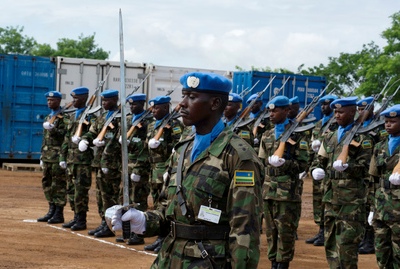UN approves more peacekeepers for civilian protection in S. Sudan
December 16, 2015 (JUBA) – The United Nations Security Council increased Tuesday the numbers of its peacekeepers in conflict-hit South Sudan by over 1,000 to a and extended its mandate for another six months, considering civilian protection as top priority.

Established on the eve of South Sudan’s independence in July 2011, the UN Mission in South Sudan (UNMISS) came into play with a mandate to support the Juba government in efforts to consolidate peace through state building and economic development.
The UN mission currently has up to12,500 uniformed personnel on the ground in South Sudan.
The latest resolution came in the wake of reports that “there are reasonable grounds to believe that war crimes and crimes against humanity, including those involving extrajudicial killings, rape and other acts of sexual violence, enforced disappearances, the use of children in armed conflict, arbitrary arrests and detention, and attacks on schools and hospitals have been committed by both Government and opposition forces.”
Members of the Council asked the Secretary General to develop a plan for UNMISS “to take appropriate action to deter and respond to any escalation of violence in and around Juba (the capital), in order to effectively protect civilians, and to protect critical infrastructure.”
Fighting between forces loyal to President Salva Kiir and the armed opposition leader, Riek Machar killed tens of thousands and displaced nearly two million civilians.
According to the resolution, there is need for “proactive deployment, active patrolling with particular attention to IDPs (internally displaced persons), including but not limited to those in protection sites and refugee camps, humanitarian personnel and human rights defenders, and identification of threats and attacks against civilians.”
It also called for a mission-wide early warning strategy, including information gathering and monitoring, to counter threats and attacks against civilians and investigations into abuses on children and women, including all forms of sexual and gender-based violence.
(ST)
